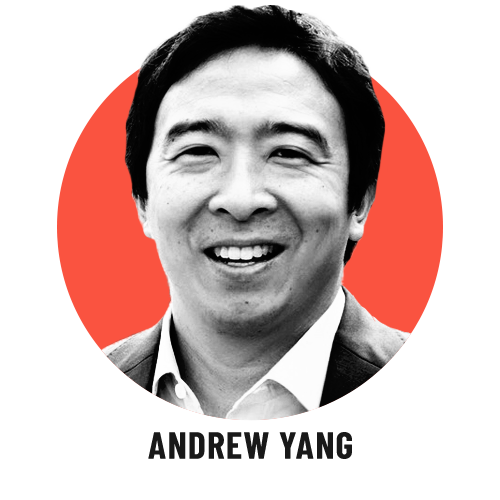This technology is addictive and damaging the mental health of our children. Research shows that too much time spent on social media increases stress, anxiety, depression and feelings of isolation. Other studies have found that extended screen time can negatively affect sleep.
Over the past couple of decades, giant tech companies have largely operated in an environment of self-regulation. As a result, we've seen technological marvels that would have been unthinkable a generation or two ago. Who doesn't enjoy the ability to video chat with a parent or child instantaneously? But are we truly better off? And what are we trading for that convenience? The health of our kids, and of generations to come, depends on us taking action now.
As president, I will establish a Department of the Attention Economy that will work with tech companies and implement regulations that curb the negative effects of smartphones and social media. We need 21st century solutions for 21st century challenges. Breaking up Facebook or Apple sounds good, but it wouldn't address this issue. If anything, having four Facebooks competing for our attention might make the problem worse.
We can start by curbing design features that maximize screen time, such as removing autoplay video and capping recommendations for videos, articles and posts for each user each day. Platforms can also use deep-learning algorithms to determine whether a user is a child, and then explore capping the user's screen hours per day.
Design features that encourage social validation should also be removed. Instagram is leading the way by testing hiding likes on the posts of some users. That's a step in the right direction and it should be implemented as soon as possible. In addition, the number of followers a person has on social media should be hidden too, as it represents a false equivalence with a person's social standing.
Another area that deserves attention is the content our kids consume. When I was growing up, television time meant morning cartoons and after-school specials. Rules and standards should be established to protect kids from graphic content and violent imagery. Subsequently, these regulations would also incentivize the production of high-quality content and positive programming.
It shouldn't stop there. Parents have a major role to play — and they want to — but they could use some help. Companies should be required to provide parents with guidance on kid-healthy content (similar to the rating system for TV or movies), and parents should easily be able to monitor content and screen time for children.
Finally, schools can set an early standard for our kids. This requires teaching kids about responsible technology use as part of the health education curriculum. We can also teach children how to assess the quality and source of information so that they're not susceptible to misinformation when they come across it online.
It's right to embrace technology and all the conveniences and advantages that come with it. But we can't embrace it at the cost of our humanity. We owe our children a new way forward in this technology-driven era.
Economy - Latest - Google News
November 19, 2019 at 01:03AM
https://ift.tt/35caYIB
Andrew Yang: As president, I will establish a Department of the Attention Economy - CNN
Economy - Latest - Google News
https://ift.tt/2QoMOqv
Shoes Man Tutorial
Pos News Update
Meme Update
Korean Entertainment News
Japan News Update
Bagikan Berita Ini















0 Response to "Andrew Yang: As president, I will establish a Department of the Attention Economy - CNN"
Post a Comment